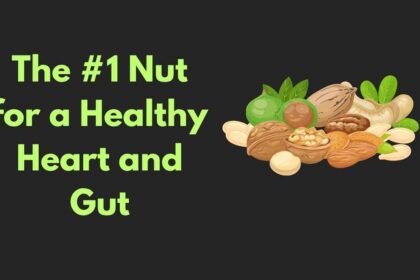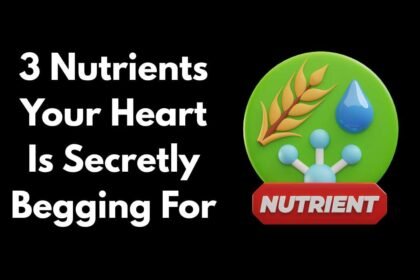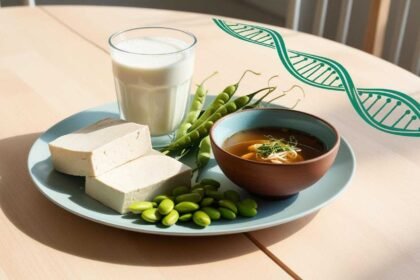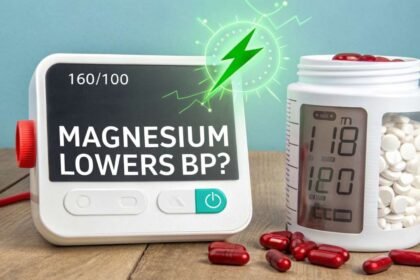High blood pressure, also known as hypertension, affects millions of people globally and is a major risk factor for heart disease and stroke. But what if a simple kitchen ingredient could help you manage it?
According to recent studies, ginger may help lower blood pressure, especially systolic blood pressure—the top number in a blood pressure reading.
In this blog post, we’ll explore how ginger works, why it’s effective, and how you can include it in your diet safely.
If you’re looking for natural ways to support your heart health, ginger for high blood pressure might just be your new best friend.
What Is Systolic Blood Pressure and Why It Matters
When you check your blood pressure, you see two numbers. The top one is systolic blood pressure, which measures the pressure in your arteries when your heart beats.
The bottom number, diastolic blood pressure, measures the pressure between beats.
Why focus on the top number? Because high systolic pressure increases your risk of heart attacks, stroke, and kidney problems over time.
According to the Mayo Clinic, managing this number is critical for long-term heart health.
What the Science Says About Ginger and Blood Pressure
A 2025 review in Cureus titled “Ginger: A Nutraceutical Supplement for Protection Against Various Cardiovascular Diseases in Clinical Trials” looked at multiple clinical trials and found something surprising:
“Several of the studies in the review found that ginger supplements helped reduce systolic blood pressure.”
That’s a big deal because lowering this number reduces stress on your arteries and heart.
So, how does ginger help lower blood pressure?
How Ginger Works Like Blood Pressure Medication
Liz Weinandy, a registered dietitian nutritionist at The Ohio State University Wexner Medical Center, explained it this way:
“Specific compounds in ginger may work similarly to calcium channel blocker medications.”
Calcium channel blockers are a common type of blood pressure drug. They work by relaxing blood vessels and slowing down the heart rate.
This helps lower the pressure inside your arteries. Ginger seems to have a similar effect—naturally.
Powerful Compounds in Ginger
Ginger contains natural bioactive compounds like gingerol, shogaol, and zingerone, which are known for their anti-inflammatory and antioxidant effects. These compounds may help:
- Improve blood circulation
- Reduce inflammation in blood vessels
- Relax the smooth muscles of the arteries
- Lower oxidative stress, which can damage the heart over time
Together, these benefits make ginger a powerful natural remedy for high blood pressure.
How Much Ginger Should You Take?
The Cureus study mainly reviewed ginger supplements, but fresh or powdered ginger may also help. Here’s a basic guide:
- Fresh Ginger Root: 1–2 grams per day (about 1/2 to 1 teaspoon grated)
- Ginger Tea: 1–2 cups daily
- Ginger Powder: 500 mg to 2 grams per day in capsule form or as spice
Tip:
Always consult your doctor before starting any supplement, especially if you’re already taking medication for blood pressure.
Best Ways to Use Ginger for High Blood Pressure
Want to include more ginger in your daily routine? Here are some simple and delicious ideas:
- Capsules or Tablets: For those who want a more concentrated dose, supplements are available.
- Ginger Tea: Steep fresh ginger slices in hot water with a touch of honey and lemon.
- Smoothies: Add fresh ginger or powder to your morning smoothie.
- Soups and Stir-Fries: Grated ginger adds a flavorful kick and health boost.
- Ginger Shots: Mix ginger juice with lemon and a dash of cayenne for an energizing start to your day.
Who Should Be Cautious?
Although ginger for high blood pressure sounds great, it may not be for everyone.
- Pregnant women should limit intake to avoid digestive upset.
- People on blood thinners like warfarin should be cautious, as ginger can increase bleeding risk.
- If you’re on heart or blood pressure medication, consult your doctor before combining with ginger.
Additional Benefits of Ginger
Aside from helping with blood pressure, ginger offers several other health perks:
- Reduces Nausea: Especially useful for motion sickness and morning sickness
- Fights Inflammation: Beneficial for arthritis and joint pain
- Boosts Immunity: Thanks to its antioxidant content
- Aids Digestion: Helps with bloating and indigestion
It’s easy to see why this spice has been used for centuries in traditional medicine!
Final Thoughts
Ginger for high blood pressure isn’t just an old wives’ tale—it’s now backed by science. From relaxing your arteries to mimicking the effects of prescription medications, ginger offers a natural, safe, and tasty way to support your cardiovascular health.
However, like any health supplement, ginger should be used with caution and medical guidance.
If you’re already managing hypertension with medication, talk to your doctor before making changes.
So next time you’re cooking, brewing tea, or shopping for supplements, don’t overlook this humble root. A little ginger might go a long way for your heart.












